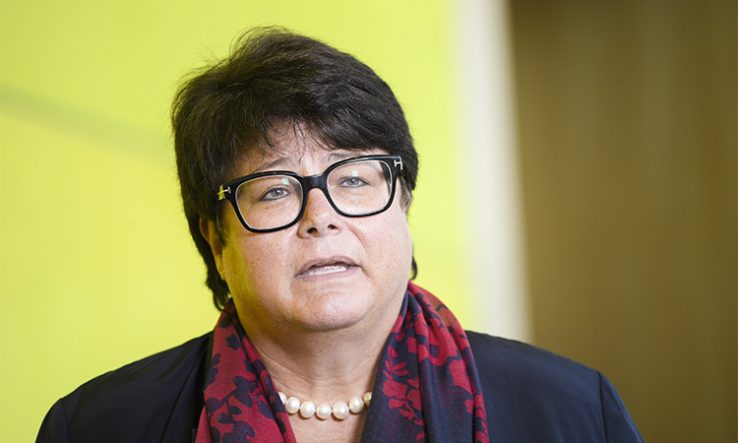
Sabine Verheyen condemns Russian attacks and calls for EU to help young refugees access education
A leading MEP speaking in the European Parliament has condemned Russian attacks on educational facilities in Ukraine as being “against humanity”.
As the war continues, Russian forces have targeted civilian infrastructure in Ukrainian cities, with the International Criminal Court collecting evidence of war crimes. In the north-east city of Kharkiv, which has come under heavy bombardment, media reports have shown buildings of the Kharkiv National University in flames after being shelled.
Speaking at a session of the Parliament’s Committee on Culture and Education on 15 March, committee chair Sabine Verheyen (pictured) said that attacks on educational facilities were “attacks against knowledge, against humanity, against our values, against everything that we stand for and that would lead to a better future”.
Many universities across Europe have opened their doors to students fleeing the conflict, while some countries are announcing policies to support students. In Ireland, Ukrainian students will pay the same fees as those from EU member states and will get access to grants and language training.
Verheyen called on the EU’s educational institutions to work together to support young people displaced by the war. “We need to give them access to education so that they have a chance for a future no matter where they are,” she said.
Research actions
EU bodies continue to work on reacting to the Russian invasion of Ukraine. On 17 March, the European Research Area and Innovation Committee—which brings together senior national and EU research officials—will meet for the second time since the start of the war to discuss measures being taken within research and innovation policy.
On 2 March, the European Commission announced it was stopping the agreement of any new collaboration with Russian organisations through EU programmes, blocking EU payments to Russian entities and reviewing all existing research projects involving Russia.
Research sector organisations also continue to cut ties with Russian institutions. On 11 March, the board of the Association of European Research Council Grantees said it would “cease any institutional cooperation with partners funded by the government of the Russian Federation”.
“The Association of ERC Grantees is committed to supporting Ukrainian scientists currently in Ukraine or who have fled the country through its networks and to helping them maintain their professional activities,” the board said.